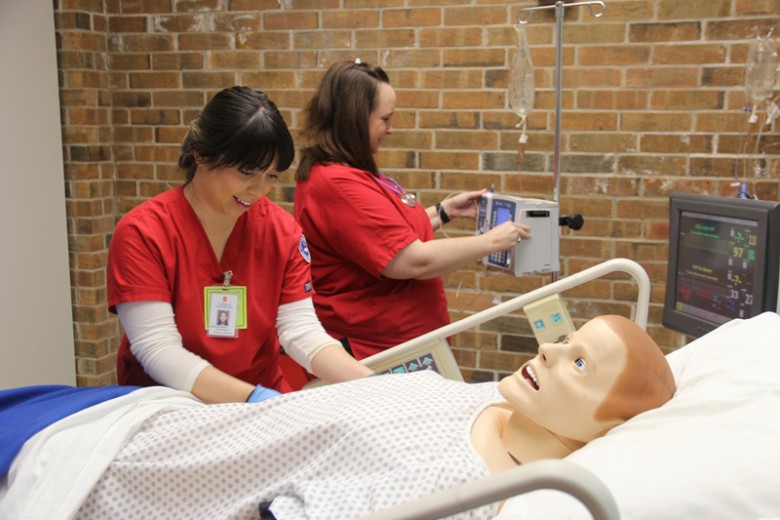COM receives nursing grant for robotic patient, lab

College of the Mainland will purchase another SIM Man, a computerized manikin that can talk, breathe and respond to students' treatments, through a Nursing Innovation Grant.
The $149,905 grant from the Texas Higher Education Coordinating Board will allow the
college to purchase the Sim Man, train staff and renovate a lab to house it.
"The simulations are helpful before we go to the hospital," said COM nursing student
Tisha Eaglebarger. "The different scenarios teach us to think more critically. We
are able to get a lot of information from him. We can make him talk and get an ECG."
The grant will provide an alternate way for COM nursing students to complete more
clinical hours. Enrollments in the COM Associate Degree Nursing Program have increased
from 80 in 2013 to 120 in 2014, and while the program conducts clinicals at facilities
from University of Texas-Medical Branch to Texas Children's Hospital, health care
centers cannot meet the increased demand.
"We'll include more hours in the simulation lab as opposed to hospital hours," said
COM nursing professor Ja Lowry, who worked on the grant with professor Debbie Biscoe-Ingram.
"Studies show students do as well with simulation care as with patient care."
The lab will be equipped with webcams and rolling computers. Students will work independently
without professors in the room. Instead instructors monitor through a Web cam and
head set.
"I will be seeing what they're seeing and I can hear through the headset," said Lowry.
"We can video them in the scenario and play it back after and critique their performance."
The COM Associate Degree Nursing Program offers two tracks: a pre-licensure track
and LVN to RN transition track. Both groups will learn in the new lab.
"They can make mistakes during the simulation without fear of causing harm, but they
never make that mistake again," said Lowry. "It's a safe place to learn."
For more information on the COM Associate Degree Nursing Program, visit www.com.edu/nursing.
